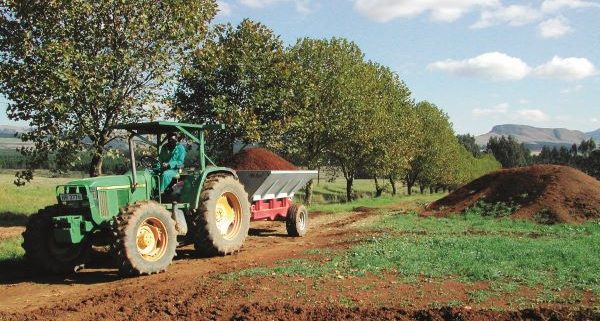Farming Cheats: Fertilisation – African Farming
Don’t underestimate manure!
Farming doesn’t always have to be complicated. There are some basic things you can do to increase the profitability of your business greatly – things like liming to correct soil acidity, ripping to solve soil compaction, or using more manure for your crops.
Any manure – poultry, cattle, horse, sheep or goat – is excellent for building soil fertility. Not only does it supply nutrients, it also benefits plant growth in a number of other ways, and so helps to improve your yields.
Nutrients in manure
A particular advantage of manure is the range of macro- and micronutrients it provides to crops. These nutrients are in found in relatively low concentrations in manure, so you need to apply a lot – usually about 2.5t/ha to 20t/ha, with poultry manure generally being applied at lower rates than kraal manure.
As fertiliser prices rise sharply year on year, the nutrients in manure are becoming increasingly valuable. The amount of nutrients – nitrogen (N), phosphorus (P) and potassium (K) – made available to crops by poultry or kraal manure, when applied at 8t/ha, together with their current monetary value (based on fertiliser prices).
Remember, rand values are calculated conservatively, since nutrients other than N, P and K are not taken into account, and neither are the other beneficial effects manures have on your soil. Manures should ideally be worked into the soil by tillage before a crop is planted.
To get the best out of the nitrogen in manure, it should be “turned in” immediately after it has been spread. Manure left on the surface may lose significant amounts of N to the atmosphere within just a few days.
Poultry manure is generally much higher in P and lower in K than kraal manure. Using poultry manure on crops for long periods may result in the soil containing too much P and too little K. It is advisable to test your soils so that you know what you have too little of, or too much.

Making most of rain
Ploughing or disking manure into your soil helps to make the most of rainfall. Yes, it’s true. Scientists have found that manure prevents the soil from forming a crust on the surface, allowing rain to penetrate the soil and stop it from running away.
An experiment on a Cedara soil with very poor water infiltration showed that adding 8t of poultry manure per hectare increased the rate at which water penetrated the soil from about 10mm per hour to 30mm per hour. But that’s not all: manure also helps soil to “hold” more water for crops to use.
This is particularly important if you are farming on sandy soils that hold very little water. Any improvements can have a major benefit for your crops.
Loosening the soil
Compacted soil can be a big problem. And because it’s happening below ground, you don’t see it. Researchers have found that manure plays an important role in building the structure that reduces the tendency of a soil to compact. Keep in mind that ploughing or disking manure into soil reduces its density and allows roots to grow deeper.
Manure and soil acidity
Fertilisers, especially nitrogen fertilisers, make soil more acid, while manure makes soil less acid. Poultry manure is especially good at this. Most poultry manures have a pH of about 8 and are rich in calcium (Ca), so by repeatedly using poultry manure you can lower soil acidity and soil pH – not only in the topsoil, but also in the subsoil. On two sugar-cane fields next to each other, poultry manure was repeatedly applied to one, while the other received nothing.
The result: soil in the field where manure was applied had a pH level of a unit higher throughout the soil profile, compared with the field where no manure was applied.
Improving soil life
Soil life such as earthworms, fungi and bacteria helps to keep soil healthy and productive. To survive, these organisms need food in the form of organic matter, and manure supplies just that.
Not surprisingly, it has been found that by adding manure you stimulate the life in soil, with the number of earthworms, in particular, increasing after manure has been added to soil.
Summary
Manure is medicine for soil, and the best way of getting tired and worn-out soil healthy again is to apply manure. Soil to which manure has been applied needs less fertiliser and produces better and more crops. So if you’re a clever farmer, you won’t look at manure and see a waste product – in fact it is an incredibly valuable asset!




Leave a Reply
Want to join the discussion?Feel free to contribute!